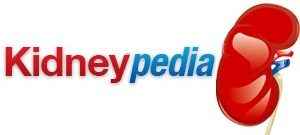Creatinine is a substance produced by the muscles during metabolism, a conversion from creatine, which is important in allowing the muscles to make use of energy. An amount of creatinine is produced every day depending on muscle mass and muscular activity. As a waste product, it is filtered from the blood by the kidneys, and so high creatinine levels in the blood are indicative of possible problems with kidney
function.
Serum creatinine is an important blood test in diagnosing kidney disease, especially when high creatinine in the blood occurs in conjunction with low creatinine in the urine. The most common causes of impaired kidney functioning are diabetes and high blood pressure, although other factors such as obesity, infections, and injury to the kidneys themselves may also produce this problem. Any impairment of renal function is likely to result in high serum creatinine, which makes it a fairly reliable test for kidney health.
High Creatinine In Urine
The kidneys remove creatinine from the blood and deposit it in urine for ejection from the body. For that reason, creatinine levels in urine should be high, or at least higher than serum creatinine; high urinary creatinine is therefore not usually a cause for concern. On the other hand, if both urine and blood creatinine levels are high, that can indicate a cause other than kidney problems, such as a gain in muscle mass or even a high-
All tests for creatinine levels, both in blood and in urine, must be calibrated based on the patient’s age, gender, size, and muscle mass, as this will affect the baseline.
Pregnancy
Pregnancy results in changes to renal function and to pH balance, electrolyte balance, and other blood chemistry measures. As a result, the baseline for creatinine levels changes during pregnancy. Both creatinine and blood urea nitrogen (BUN) levels are reduced during pregnancy, especially the first few months, due to increased plasma flow to the kidneys.
The kidneys actually increase in physical size during pregnancy as well. For this reason, correction of the baseline for serum creatinine testing is required in order to properly calibrate the test.
Acute renal failure sufficient to require dialysis is rare as a complication of pregnancy, but can arise due to various specific and proximate causes in early or late gestation. If kidney failure does occur, there is a risk of loss of the fetus and of permanent kidney damage and the matter should of course be taken quite seriously.
Treatment
High creatinine levels being a symptom or diagnostic indicator rather than a disease as such, there is no direct treatment for the syndrome; however, subsequent blood tests can be used as a measure of the effectiveness of treatment for renal disease.
The underlying condition causing the kidney disease may require medication to reduce blood pressure, or lifestyle changes (especially in diet and exercise) to reduce weight or control diabetes.
If high blood pressure is a factor, usually medications are prescribed rather than relying solely on diet and exercise, due to the kidneys already showing damage from the condition. In some cases, high blood pressure medication may temporarily elevate creatinine levels further; however, this is normally a self-
Severe damage to the kidneys and acute renal failure may require surgery, dialysis, or a kidney transplant to correct. Less severe levels of kidney damage are usually reversible, however, once the underlying cause of the problem is corrected.
